Literary rating: ★★
Kick-butt quotient: ☆☆
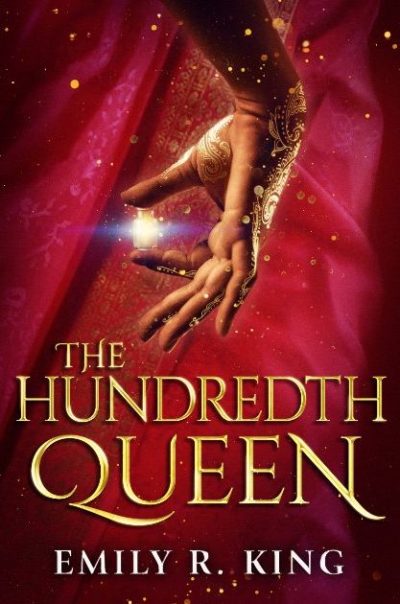 An interesting premise gets wasted, buried under a muddied writing style which sets up in one direction, then abandons it for another. Orphan Kalinda has been brought up by The Sisterhood in their remote temple in the mountains (kinda Indian, kinda Sumerian, annoyingly non-specific), training in the ways of a warrior – though others have far more talent in the era. Her life is upended when the local monarch, Tarek, visits the temple and selects Kalinda to be his next wife. Next, as in he already has 99, not to mention his additional courtesans. The problem for Kalinda is, this sets up a tournament in which she can be challenged by the other women, who seek to supplant her.
An interesting premise gets wasted, buried under a muddied writing style which sets up in one direction, then abandons it for another. Orphan Kalinda has been brought up by The Sisterhood in their remote temple in the mountains (kinda Indian, kinda Sumerian, annoyingly non-specific), training in the ways of a warrior – though others have far more talent in the era. Her life is upended when the local monarch, Tarek, visits the temple and selects Kalinda to be his next wife. Next, as in he already has 99, not to mention his additional courtesans. The problem for Kalinda is, this sets up a tournament in which she can be challenged by the other women, who seek to supplant her.
The journey to Tarek’s palace is barely under way before two issues rear their head, that drive the plot the rest of the way. One is Kalinda falling into a forbidden love for Deven, the guard who’s escorting her. The other is her encounter with a “bhuta”. These are half-human, half-demons, who exist in four kinds, each possessing power over the elements of fire, earth, air and water. Might this, perhaps, be connected to the mysterious fevers from which Kalinda has been suffering from a child, only kept in check by her daily consumption of a potion?
Of course it is. For the book rarely strays from the obvious, virtually from the start when Kalinda immediately falls head-over-heels in love, with literally the first man she has ever seen. There’s no sense of chemistry here at all, or of a romance growing naturally out of the characters. It seems shoehorned in there because, dammit, it was on a checklist of things fantasy books need to be successful, which King found online somewhere. The interactions between Kalinda and the other women weren’t much more convincing, sitting somewhere between Mean Girls and The Hunger Games.
I’m not even clear on the details of the tournament, which is supposed to be the main plot device of the book. Who challenges who? What are the mechanics here? What does Tarek get out of it? It’s the ultimate plot-device, since his motivation for setting up the event is entirely obscure. It’s not as if he can exactly stream the event on pay-per-view. There are a couple of plot twists later on, that did manage to engage my interest briefly – these did help explain why Tarek picked Kalinda, when we had repeatedly been assured earlier of her plainness and lack of talent.
However, the actual competition is largely glossed over with a disapproving frown, culminating in a big, damp squib of pacifistic grrl power. This is less drama than melodrama, with every character being exactly what they appear to be, and possessing few hidden depths. The last third of this proved to be a particular slog, and it’s not a universe to which I’ll be returning in future.
Author: Emily R. King
Publisher: Skyscape, available through Amazon, both as an e-book and in a printed edition.





 After breaking up with her boyfriend, Gloria (Hathaway) holes up in her middle-American hometown. She gets a job in a bar, run by her childhood pal, Oscar (Sudeikis) – not that this employment does much for Gloria’s burgeoning alcoholism. Meanwhile, over in Korea, the city of Seoul is being plagued by a giant monster, which will appear out of nowhere, behave oddly, and then vanish again. Gloria eventually figures out that when she goes through a particular spot – a local children’s playground – at a specific time, the creature appears in Korea, and its actions reflect hers. Turns out Oscar can do the same, manifesting in Seoul as a giant robot, and he may not be as benign with his new-found powers, as Gloria is attempting to be.
After breaking up with her boyfriend, Gloria (Hathaway) holes up in her middle-American hometown. She gets a job in a bar, run by her childhood pal, Oscar (Sudeikis) – not that this employment does much for Gloria’s burgeoning alcoholism. Meanwhile, over in Korea, the city of Seoul is being plagued by a giant monster, which will appear out of nowhere, behave oddly, and then vanish again. Gloria eventually figures out that when she goes through a particular spot – a local children’s playground – at a specific time, the creature appears in Korea, and its actions reflect hers. Turns out Oscar can do the same, manifesting in Seoul as a giant robot, and he may not be as benign with his new-found powers, as Gloria is attempting to be.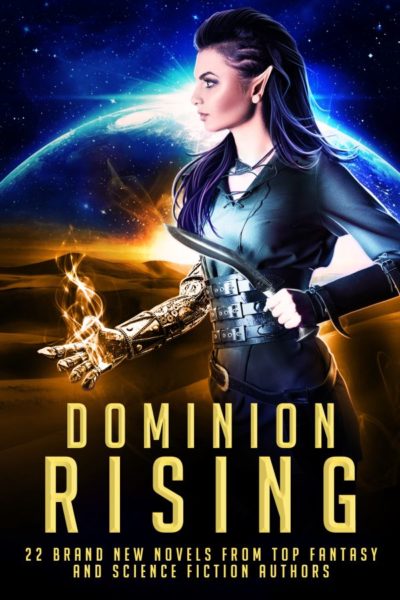 I am a sucker for bulk-buying. Regular readers will know this, since one of the first things reviewed here was the
I am a sucker for bulk-buying. Regular readers will know this, since one of the first things reviewed here was the 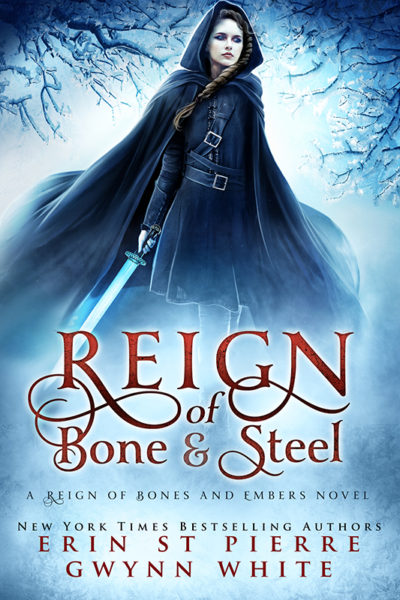 This certainly doesn’t waste any time, starting in the middle of a brutal pitched battle between the kingdom of Yatres, and their mortal enemies, the Nyhans. Among the Fae – basically, elves – in the former army is the warrior Caeda, and it’s her side that emerges victorious. But the price paid by the fallen on both sides is an ugly one. Their souls are absorbed through a magical sword, wielded by the Fae known as the Soul-Reaper, and fed to an artifact called the Bone. The trinity of Bone, sword and Reaper have helped sustain Yatres’s power down the centuries.
This certainly doesn’t waste any time, starting in the middle of a brutal pitched battle between the kingdom of Yatres, and their mortal enemies, the Nyhans. Among the Fae – basically, elves – in the former army is the warrior Caeda, and it’s her side that emerges victorious. But the price paid by the fallen on both sides is an ugly one. Their souls are absorbed through a magical sword, wielded by the Fae known as the Soul-Reaper, and fed to an artifact called the Bone. The trinity of Bone, sword and Reaper have helped sustain Yatres’s power down the centuries. I’m not sure if the problems here are a result of there being two authors credited on this story. It could certainly explain them. For rather than providing a single coherent vision, this feels like both its universe and characters are being pulled in too many different directions. It’s overstuffed with ideas and, instead of them being developed fully, scurries from one to the next, as if the writers were competing to have the final word. This comes to an end in a rather ludicrous finale. There, the entire plot takes a right turn, with the biological weapon which has formed much of the early focus all but discarded.
I’m not sure if the problems here are a result of there being two authors credited on this story. It could certainly explain them. For rather than providing a single coherent vision, this feels like both its universe and characters are being pulled in too many different directions. It’s overstuffed with ideas and, instead of them being developed fully, scurries from one to the next, as if the writers were competing to have the final word. This comes to an end in a rather ludicrous finale. There, the entire plot takes a right turn, with the biological weapon which has formed much of the early focus all but discarded. The blurb for this one reads, “Terra Cross is just your typical paranormal princess. She plays poker with goblins and leprechauns. She savors her morning muffin from the Pacific Sunrise Bakery in suburban California. She solves galactic crime cases. And on a particularly wild day, she can even see into the future.” It is somewhat inaccurate, at least as far as this novel goes. I don’t recall any poker at all, muffins appear once, and as for the crime-solving… Well, sorta but not really. There is, however, likely good reason, since the novel is a prequel to Summers’s “Sorcery and Science” series, in which I presume Terra does more of the above.
The blurb for this one reads, “Terra Cross is just your typical paranormal princess. She plays poker with goblins and leprechauns. She savors her morning muffin from the Pacific Sunrise Bakery in suburban California. She solves galactic crime cases. And on a particularly wild day, she can even see into the future.” It is somewhat inaccurate, at least as far as this novel goes. I don’t recall any poker at all, muffins appear once, and as for the crime-solving… Well, sorta but not really. There is, however, likely good reason, since the novel is a prequel to Summers’s “Sorcery and Science” series, in which I presume Terra does more of the above. Petra is a teenage Roman slave at around the birth of Christ. She is completely under the thumb of her sadistic master, Clarius, until a strange conjunction of events and a poisonous herb with mystical qualities changes the power dynamic entirely. Both of them, together with her lover, Lucius, attain immortality. But it’s an immortality which requires the two men to drink from Petra annually, or they will degenerate into sub-human monsters. Neither is happy with the arrangement: Clarius is not used to being reliant on anyone, least of all his former property, and Lucius hates the fact Petra agreed to submit to their ex-master, in order to save him. As the centuries stretch into millennia, Petra begins, slowly, to put together a group people who will be capable of defeating Lucius and the immortals he has recruited, allowing her to live in eternal peace with Lucius.
Petra is a teenage Roman slave at around the birth of Christ. She is completely under the thumb of her sadistic master, Clarius, until a strange conjunction of events and a poisonous herb with mystical qualities changes the power dynamic entirely. Both of them, together with her lover, Lucius, attain immortality. But it’s an immortality which requires the two men to drink from Petra annually, or they will degenerate into sub-human monsters. Neither is happy with the arrangement: Clarius is not used to being reliant on anyone, least of all his former property, and Lucius hates the fact Petra agreed to submit to their ex-master, in order to save him. As the centuries stretch into millennia, Petra begins, slowly, to put together a group people who will be capable of defeating Lucius and the immortals he has recruited, allowing her to live in eternal peace with Lucius.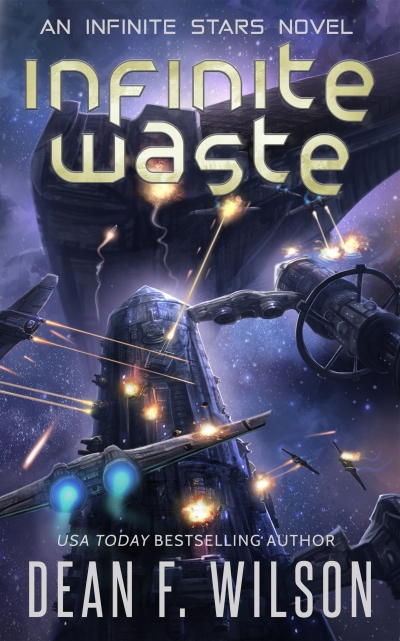 This initially seemed like a borderline entry, which I kept reading purely for entertainment. It’s about an exploratory star-ship, the Gemini, out on the very edge of known space, which comes across a giant barge, packed with nuclear waste and populated by a race of rat-humanoids, the Raetuumak. The Gemini is an appropriate name for the craft, as it’s effectively two separate ships, each with their own captain and very different approaches. Maggie Antwa, commander of Gemini Right, is a cautious scientist who abhors violence in any form, and was compelled to take on this mission after being involved in a environmentalist rebellion against the ruling Empire. Over in Gemini Left, on the other hand, Skip Sutridge is a square-jawed believer in shooting first and asking questions… well, never, to be honest. He has been sent to the fringes, probably to try and keep him out of trouble.
This initially seemed like a borderline entry, which I kept reading purely for entertainment. It’s about an exploratory star-ship, the Gemini, out on the very edge of known space, which comes across a giant barge, packed with nuclear waste and populated by a race of rat-humanoids, the Raetuumak. The Gemini is an appropriate name for the craft, as it’s effectively two separate ships, each with their own captain and very different approaches. Maggie Antwa, commander of Gemini Right, is a cautious scientist who abhors violence in any form, and was compelled to take on this mission after being involved in a environmentalist rebellion against the ruling Empire. Over in Gemini Left, on the other hand, Skip Sutridge is a square-jawed believer in shooting first and asking questions… well, never, to be honest. He has been sent to the fringes, probably to try and keep him out of trouble.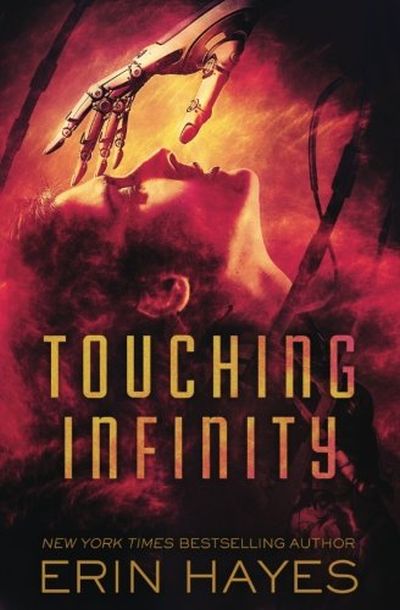 I will confess to a little post-read confusion here. Amazon calls this Volume 2 in the author’s Rogue Galaxy series – but I could find no information, there or elsewhere, regarding Volume 1. I suspect Amazon and Goodreads are wrong, and this is actually the first entry, as stated in the Dominion Rising collection. It certainly
I will confess to a little post-read confusion here. Amazon calls this Volume 2 in the author’s Rogue Galaxy series – but I could find no information, there or elsewhere, regarding Volume 1. I suspect Amazon and Goodreads are wrong, and this is actually the first entry, as stated in the Dominion Rising collection. It certainly 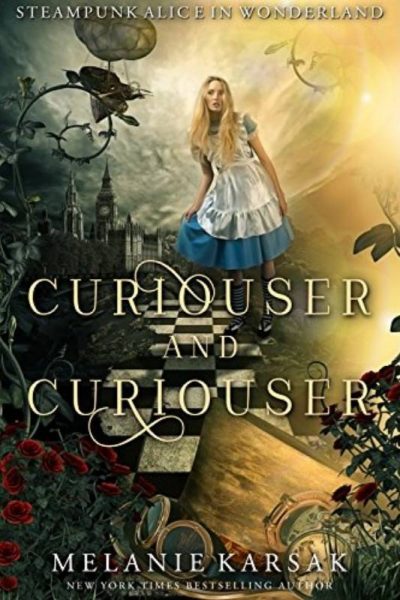 If you thought “Alice in Wonderland was okay, but it really needed more air-ships,” then this book is for you. It’s a steampunk take on Lewis Carroll’s classic tale, set in an alternate universe version of Victorian London. Specifically, 1851, when the renowned Great Exhibition took place in Hyde Park. Though it doesn’t actually feel particularly “alternate”; this angle lives mostly in its trappings, such as people using air-ships to get around, or clockwork cats, rather than in elements necessary to the plot. But that’s okay, because at its core, the story is strong enough to stand on its own.
If you thought “Alice in Wonderland was okay, but it really needed more air-ships,” then this book is for you. It’s a steampunk take on Lewis Carroll’s classic tale, set in an alternate universe version of Victorian London. Specifically, 1851, when the renowned Great Exhibition took place in Hyde Park. Though it doesn’t actually feel particularly “alternate”; this angle lives mostly in its trappings, such as people using air-ships to get around, or clockwork cats, rather than in elements necessary to the plot. But that’s okay, because at its core, the story is strong enough to stand on its own.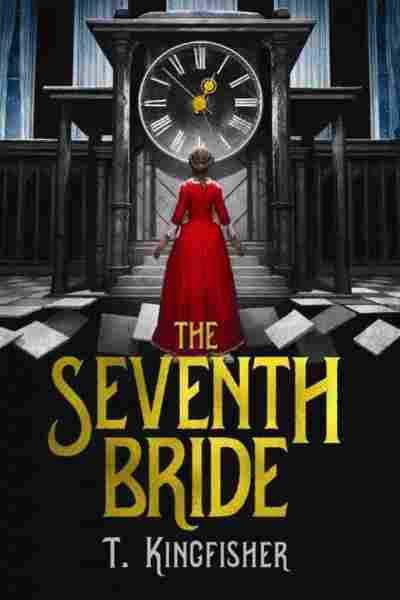 Almost all the action heroine novels I’ve read of late have been Volume 1 in a series. While not necessarily a bad thing, this does tend to lead to a sense of unfulfilled resolution. “Happy ever after” is frequently replaced by a semi-cliffhanger, intend to separate the reader from their cash for Volume 2. It rarely works, and is more likely to annoy me. After all, I’ve invested significant quantities of time (if not perhaps money; these introductory items tend to be of the 99-cent variety, so I guess the buyer should beware) in each tale, and to be left dangling is frustrating. That’s why it was especially nice to read a book like this, which tells a complete story, with a beginning, a middle and a solid, satisfactory end.
Almost all the action heroine novels I’ve read of late have been Volume 1 in a series. While not necessarily a bad thing, this does tend to lead to a sense of unfulfilled resolution. “Happy ever after” is frequently replaced by a semi-cliffhanger, intend to separate the reader from their cash for Volume 2. It rarely works, and is more likely to annoy me. After all, I’ve invested significant quantities of time (if not perhaps money; these introductory items tend to be of the 99-cent variety, so I guess the buyer should beware) in each tale, and to be left dangling is frustrating. That’s why it was especially nice to read a book like this, which tells a complete story, with a beginning, a middle and a solid, satisfactory end. Taryn St. Giles is an out of work archaeologist, who has taken up bounty hunting in order to pay the overdue rent, after the untimely death of her current patron. However, her latest target turns out to be considerably more than she can handle. For Alric is a master of both disguise and hand-to-hand combat, and Taryn’s pursuit of him rapidly entangles the heroine in a deepening web of magic and intrigue. The titular artifact – which doesn’t actually show up until well into the second half – is a potential gate, which could open a doorway and leave this world a thoroughly unpleasant place for just about everyone. Fortunately, Taryn has friends both academic and physically-inclined on her side, as well as a trio of semi-domesticated fairies. Though the last-named are engaged in their own war, with a local family of squirrels.
Taryn St. Giles is an out of work archaeologist, who has taken up bounty hunting in order to pay the overdue rent, after the untimely death of her current patron. However, her latest target turns out to be considerably more than she can handle. For Alric is a master of both disguise and hand-to-hand combat, and Taryn’s pursuit of him rapidly entangles the heroine in a deepening web of magic and intrigue. The titular artifact – which doesn’t actually show up until well into the second half – is a potential gate, which could open a doorway and leave this world a thoroughly unpleasant place for just about everyone. Fortunately, Taryn has friends both academic and physically-inclined on her side, as well as a trio of semi-domesticated fairies. Though the last-named are engaged in their own war, with a local family of squirrels.

 Director Cimber seems always to have had an interest in the action-heroine genre, having previously directed Lady Cocoa, he’d go on to do Yellow Hair and the Fortress of Gold , also starring Landon, and work on Gorgeous Ladies of Wrestling. But this was likely his best work, a rather inspired Conan knock-off, which both predates and is significantly better than Red Sonja.
Director Cimber seems always to have had an interest in the action-heroine genre, having previously directed Lady Cocoa, he’d go on to do Yellow Hair and the Fortress of Gold , also starring Landon, and work on Gorgeous Ladies of Wrestling. But this was likely his best work, a rather inspired Conan knock-off, which both predates and is significantly better than Red Sonja.





 Claire is the official “court assassin” to Mab, who is the Winter Faerie Queen. Her realm lies in a world parallel to ours, but separate from it, and inhabited by a slew of creatures we humans know only from myth, who can travel back and forth to the mortal world. Mab traffics in “Dream”, which is somewhere between a food, a drug and currency for her citizens, and the product of human emotions, particularly in group settings such as concerts or other shows. However, someone is muscling in on her turf, with the intent of controlling the Dream, and she unleashes Claire to track down the culprit, who turns out to be the ‘Pale Queen’ of the title.
Claire is the official “court assassin” to Mab, who is the Winter Faerie Queen. Her realm lies in a world parallel to ours, but separate from it, and inhabited by a slew of creatures we humans know only from myth, who can travel back and forth to the mortal world. Mab traffics in “Dream”, which is somewhere between a food, a drug and currency for her citizens, and the product of human emotions, particularly in group settings such as concerts or other shows. However, someone is muscling in on her turf, with the intent of controlling the Dream, and she unleashes Claire to track down the culprit, who turns out to be the ‘Pale Queen’ of the title.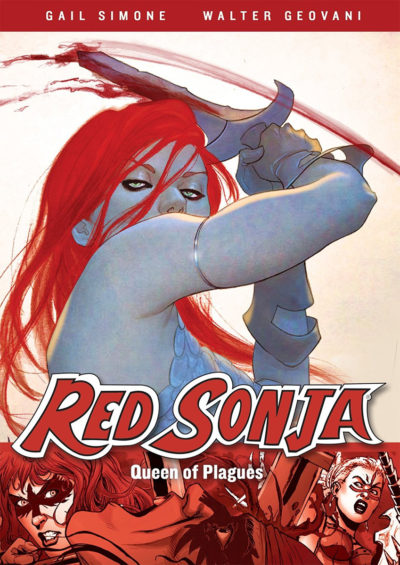 The rating here is largely based on my (I’d say, not unreasonable) expectation going in, that this would be actual animation. It isn’t. This appears to be, what I’ve since learned is called, a “motion comic”: think of it more as an illustrated radio play, with voice actors playing the parts in front of somewhat animated panels. And when I say, “somewhat”, I mean there is typically no more than one thing moving on them e.g. a character’s mouth. I can see comics for which this approach would work; unfortunately, a heavily action-oriented story such as Red Sonja is not among them.
The rating here is largely based on my (I’d say, not unreasonable) expectation going in, that this would be actual animation. It isn’t. This appears to be, what I’ve since learned is called, a “motion comic”: think of it more as an illustrated radio play, with voice actors playing the parts in front of somewhat animated panels. And when I say, “somewhat”, I mean there is typically no more than one thing moving on them e.g. a character’s mouth. I can see comics for which this approach would work; unfortunately, a heavily action-oriented story such as Red Sonja is not among them.